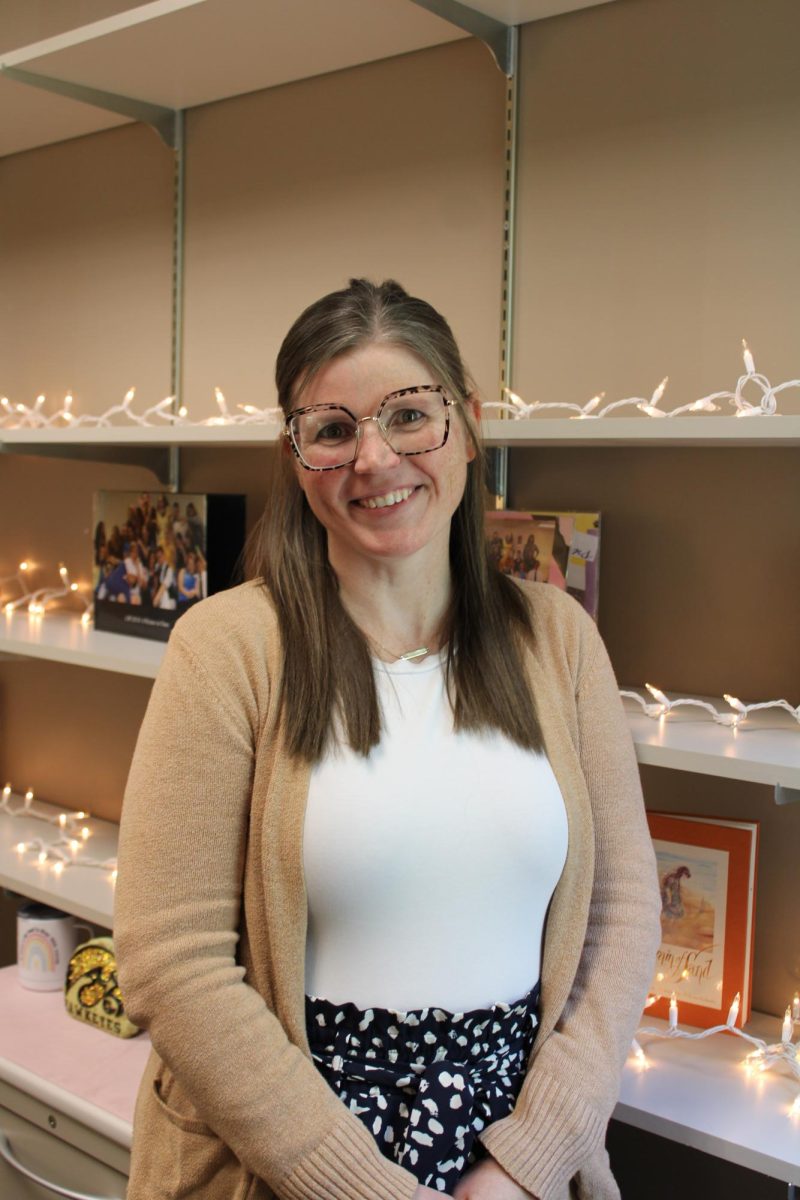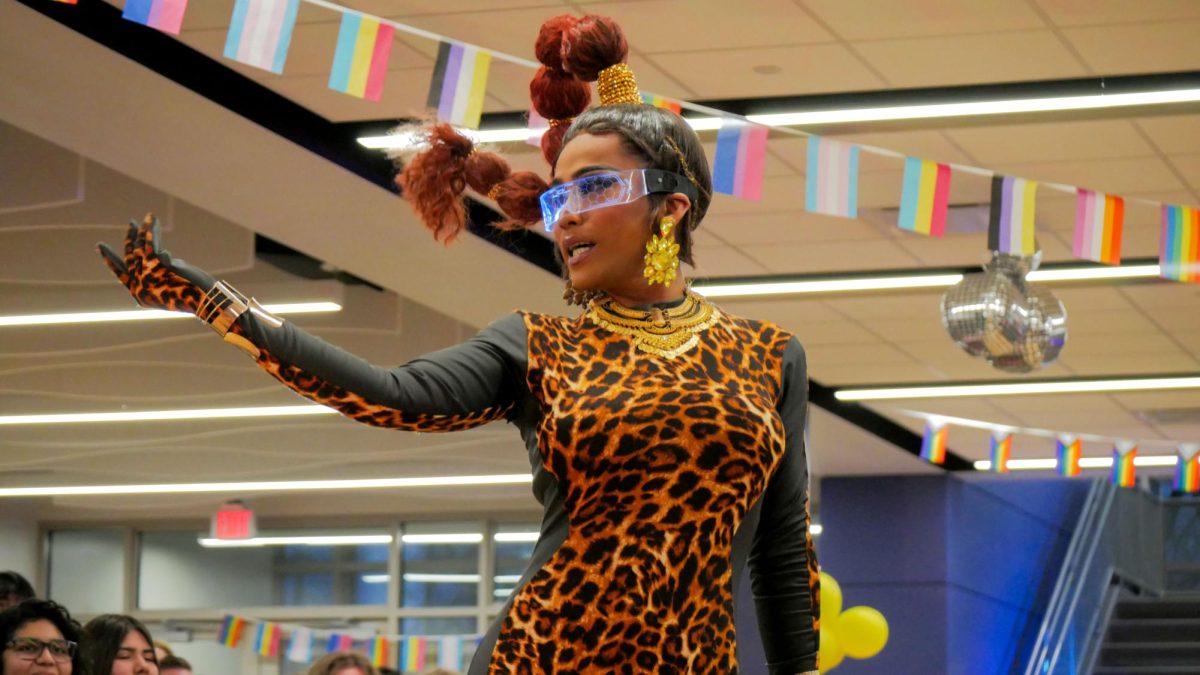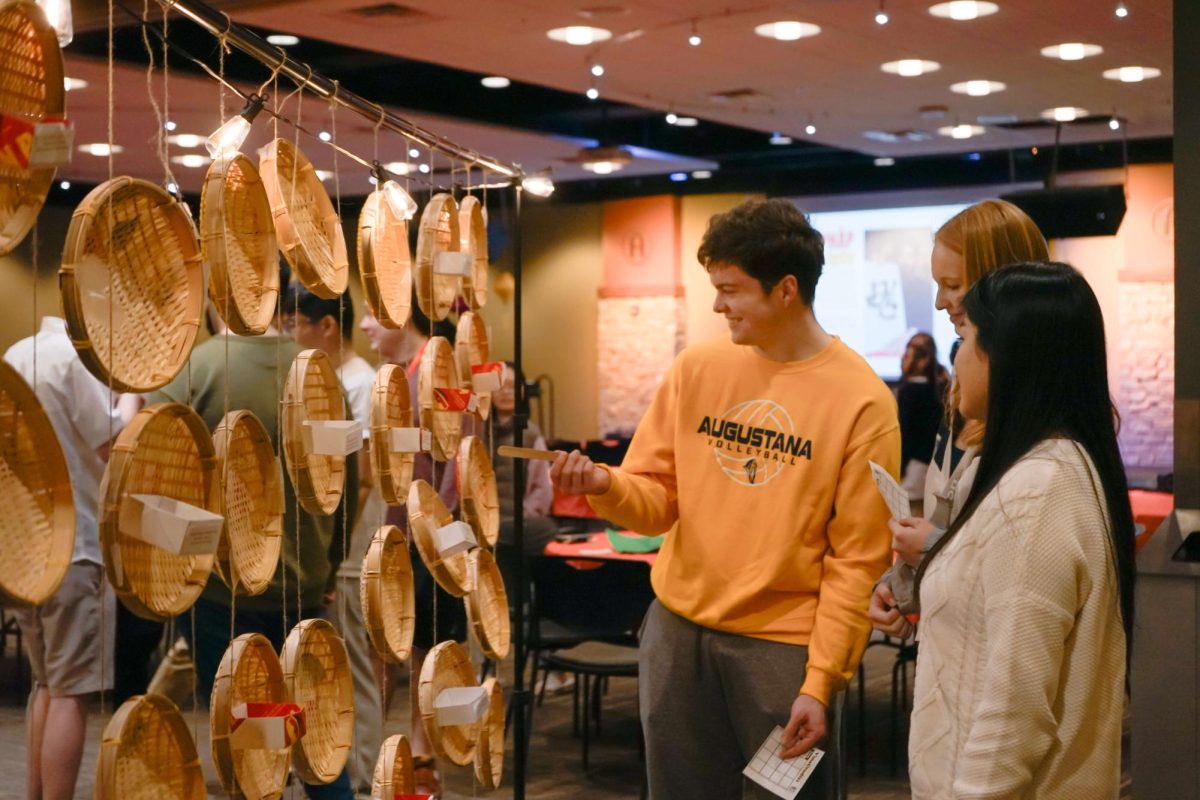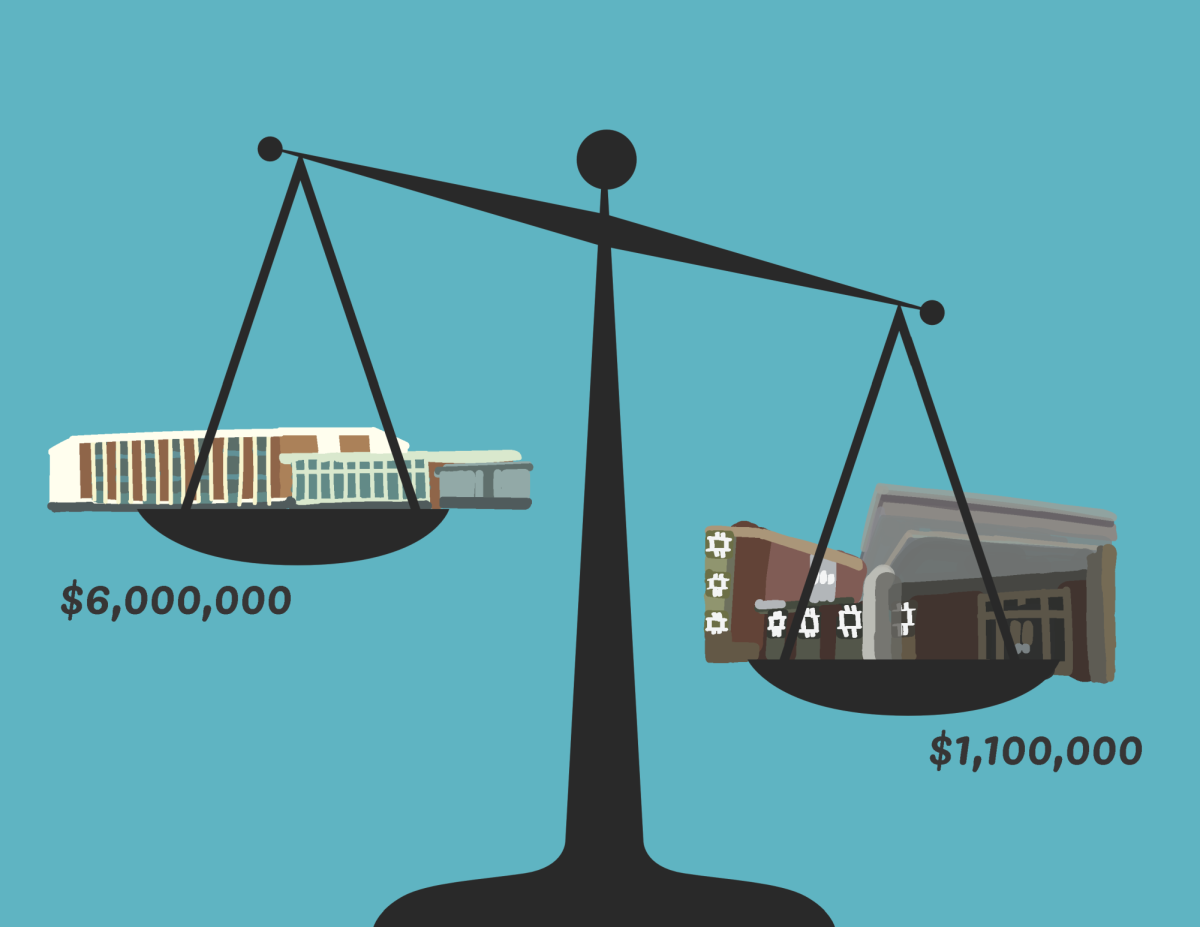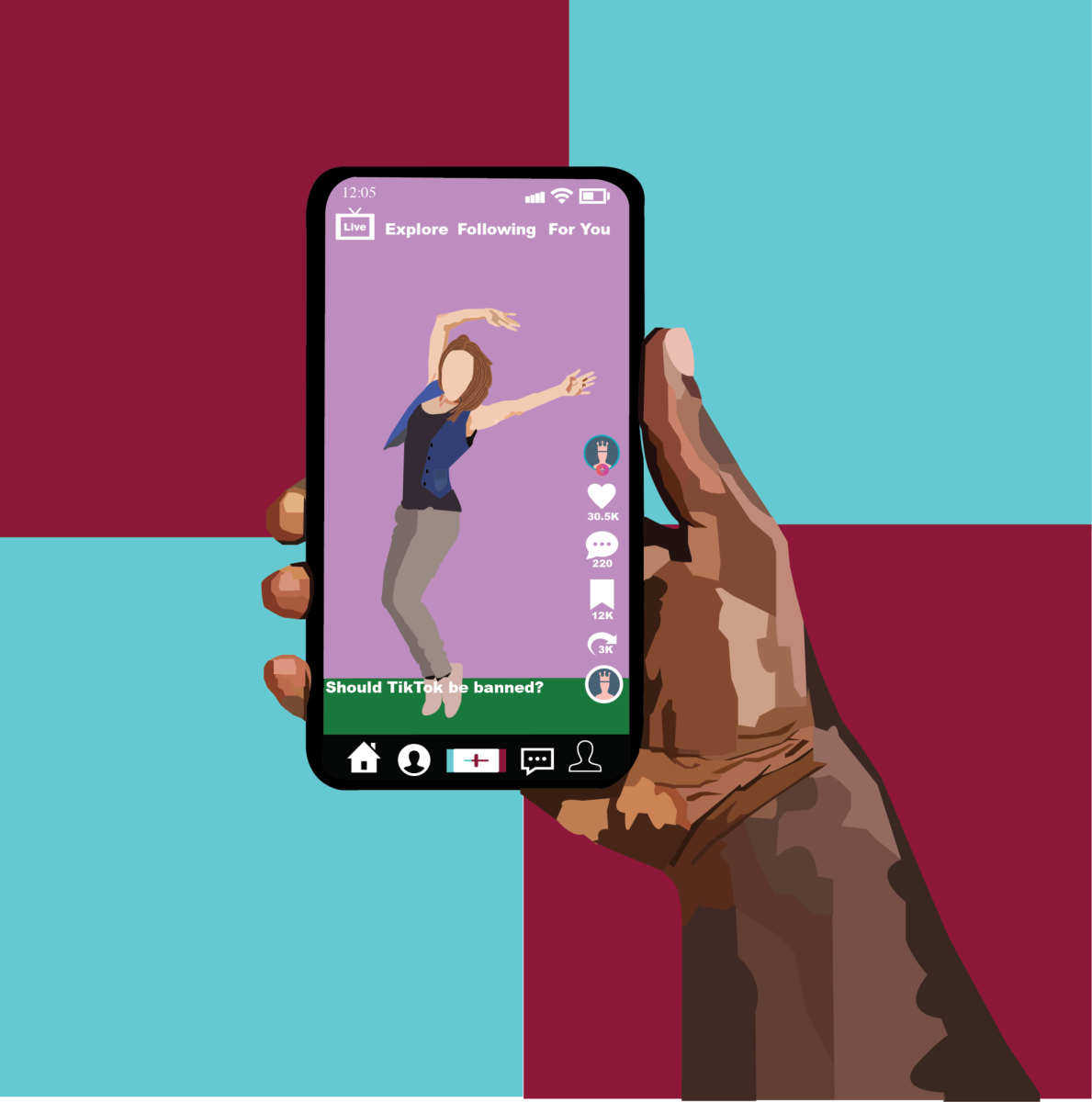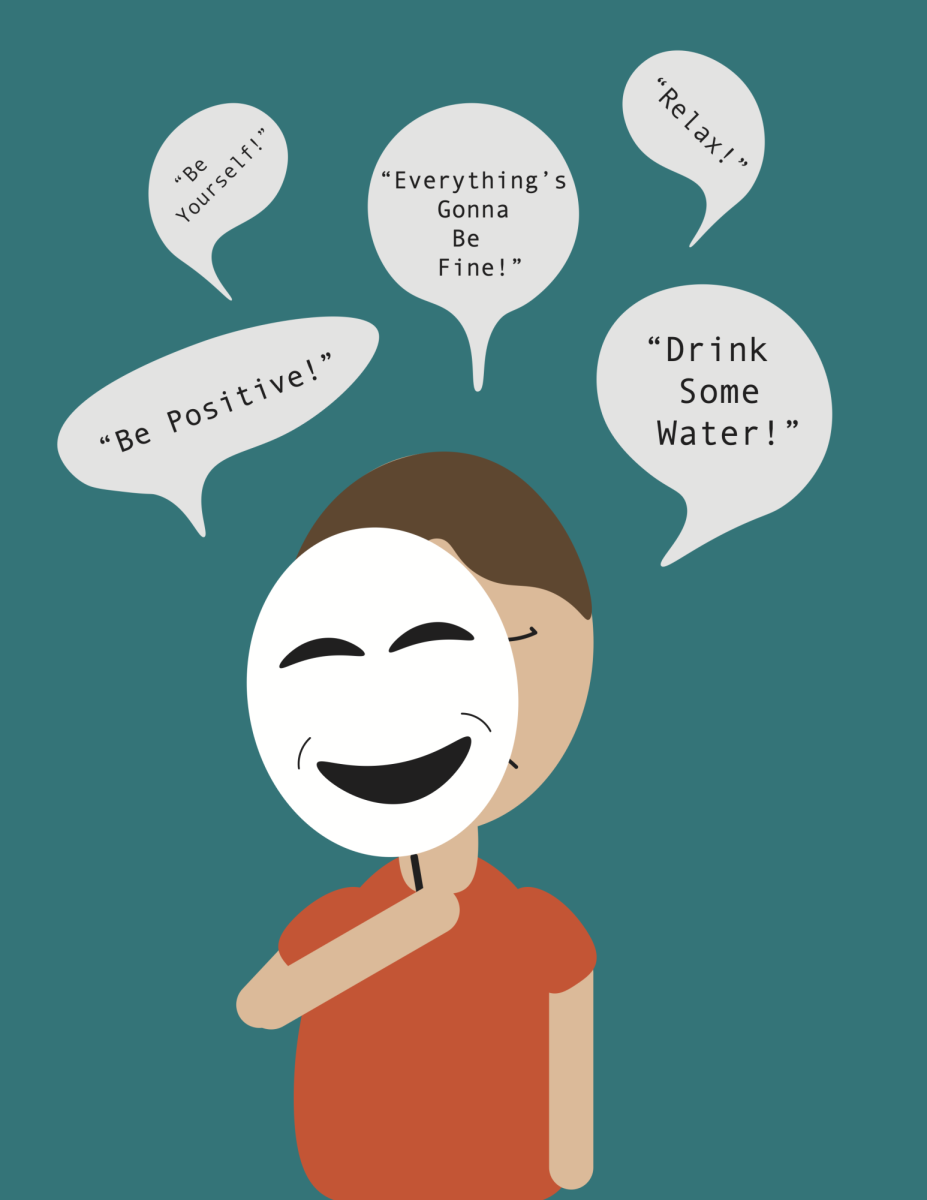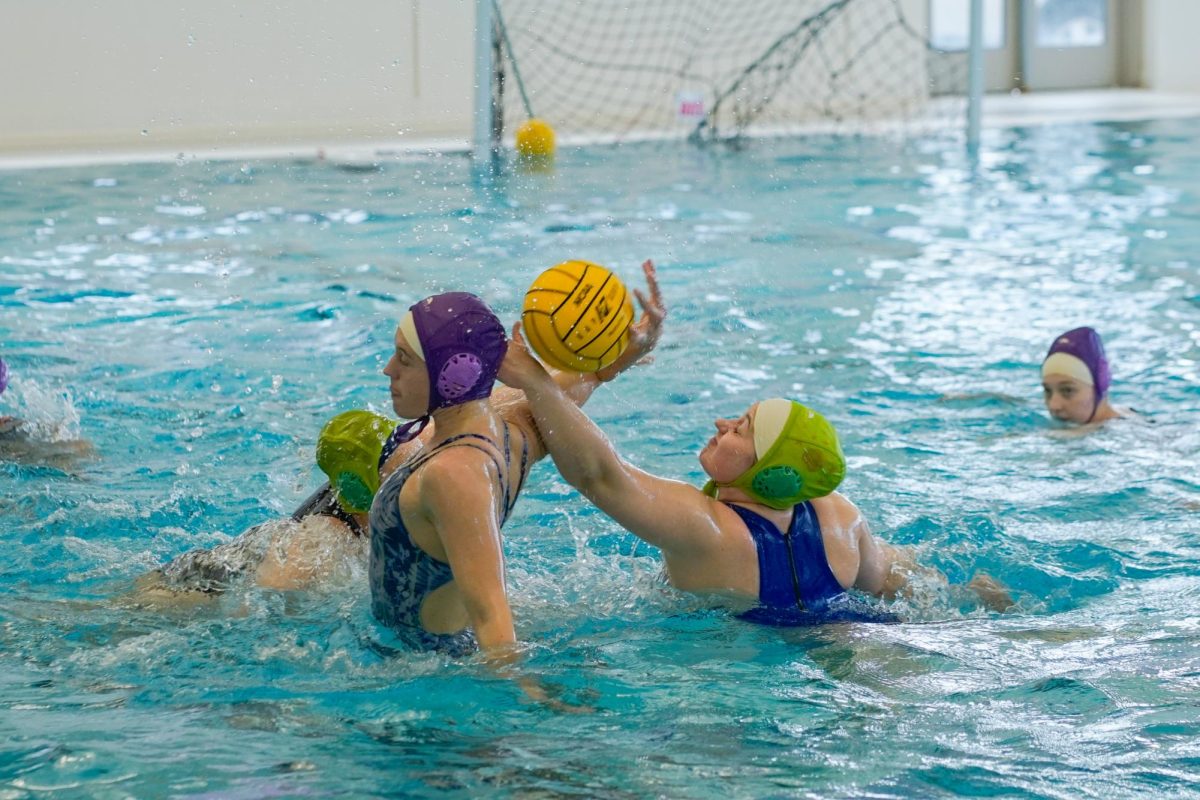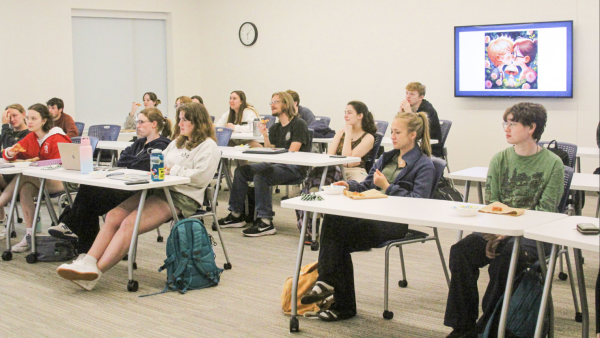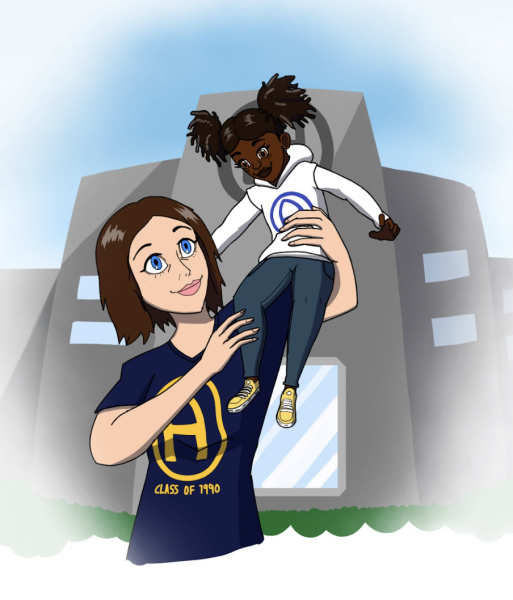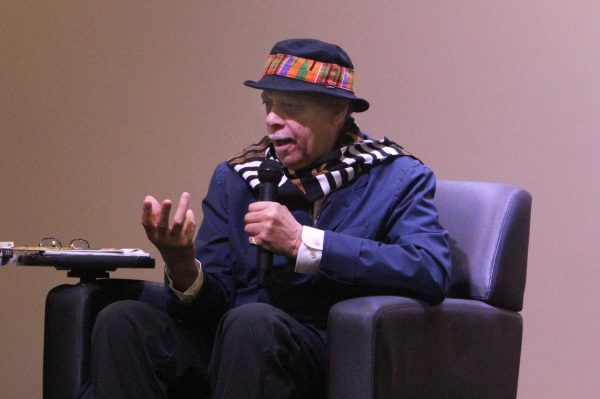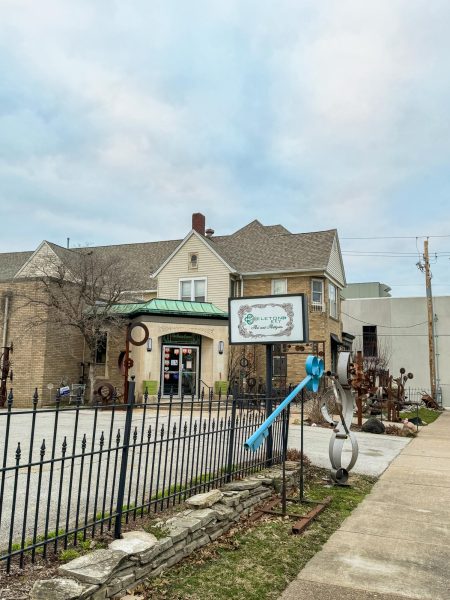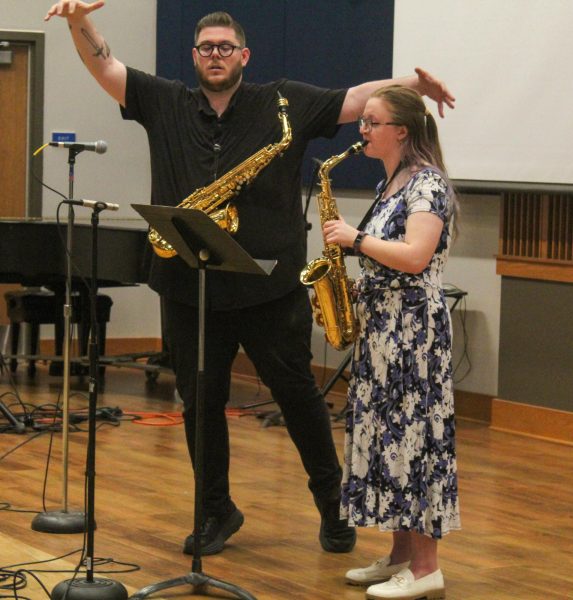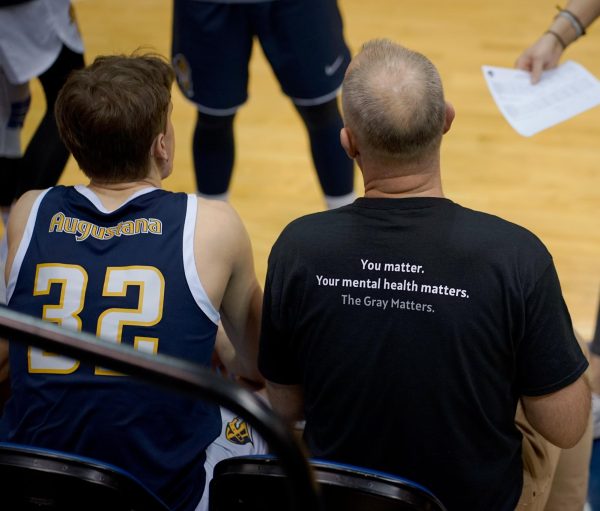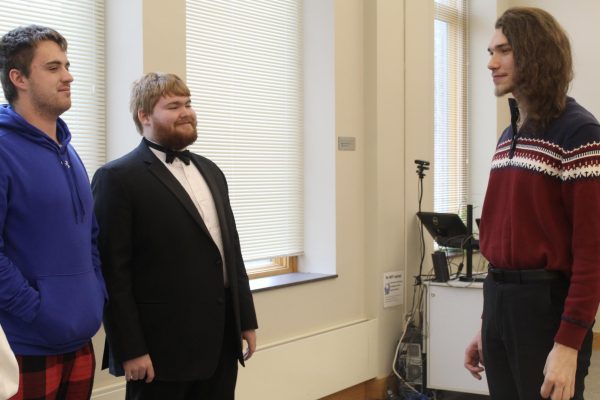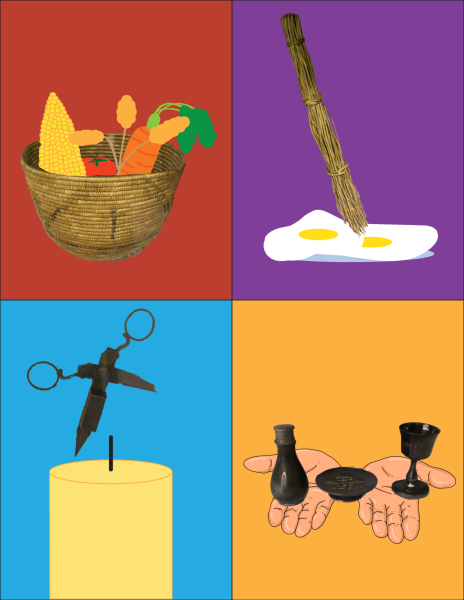Bright determination and dark hope in times of decline
November 6, 2021
A few days ago, one of my close friends broke his phone. He dropped it, and it snapped in half. It’s a flip phone. These things happen.
He said it really only matters for me, since I’m the only one he texts besides his manager. And it’s fine, really, we have Facebook Messenger, and I’ll get my fix, but now I have to put spaces in between the symbols of my emoticons so Messenger won’t turn them into emojis.
At the same time, I’m picking up a postcard from a friend living in France this year. She’s teaching English to children near Normandy and learning plenty herself post-graduation from Augustana. The postcard wishes me well and lets me know how excited my friend is for me to visit in January, when J-term will take me to Paris.
These things are bittersweet. Sweet, internationally-stamped mail from one friend and an influx of online messages from another are all well and good, but they’re reminders that many of the people I love aren’t here at Augustana.
A phone breaks, and I lose a line of communication to someone important to me. A six-hour time difference pushes away someone I used to live two minutes away from.
As much as we try to ignore it, there is a world off campus.
The more I think about how much else goes on outside of life at Augustana, the harder it is to go about my daily tasks here. For every article I read, I’m missing valuable time with friends and family back home. People I care about have limited time left, and I feel pretty useless spending those remaining days crossing off assignments on a syllabus.
To add insult to injury, I perform these seemingly useless tasks in an increasingly tumultuous world. Ten minutes from campus, union John Deere workers strike for more livable wages and better working conditions. As a part of “striketober” around the country, the event reached the national news last week. Early Wednesday morning, night-shift inspector Richard Rich was killed in a car accident on his way to the picket line in Milan after working at Deere for 15 years.
As I write this, world leaders meet in the Vatican for the G20 summit and, in one photo op, throw coins into the Trevi fountain for good luck in fighting the climate crisis. One Twitter user commented, “Oh no, that was all the money they set aside to fight climate change.”
In the last few days, the worldwide toll for the coronavirus topped 5 million lives lost, while cases are projected to rise even further.
And amidst unrest and fear as the world seems to fall apart, I had to read the first 30 chapters of “Great Expectations.” I read it, enjoyed it well enough, and I asked myself, “Why am I even doing this?”
Plenty of college students question their place at their institution, but I’m not usually one of them.
This year I’ve found myself wondering why I soldier on. Often. The one gratifying thing is that I’m not the only one wondering how people manage to keep going when the going gets tough.
Dr. Jason Mahn, professor of religion at Augustana, turned to writing. “It started as my way of dealing with these crises, just trying to work through them, and then realizing or hoping that it might be of interest or help to others,” he said.
Mahn began writing “Neighbor Love through Fearful Days” March 17, 2020, in the spring break before Augustana fully shifted to online learning to finish the spring semester.
His family had just begun sheltering in place, and Mahn chose to reflect on both the difficulties of the pandemic ─ economic troubles, the climate crisis, rising notions of white supremacy ─ as well as the good things it brought out: a call to neighborly love.
“I wrote journal entries for close to a month and a half before I started sharing this with some other people,” Mahn said. “I was able to identify a through line through a lot of these wanderings and tangents.”
The book’s entries continue through Aug. 2020 and was published a year later in Aug. 2021.
The first part (of three) responds to the coronavirus pandemic as Augustana shifted to virtual learning and the world shrunk down to households and computer screens. Grappling with the pandemic on a smaller scale allowed for Mahn to draw parallels between COVID-19 and other “pandemics” as they became undeniable.
The first chapter, called “Banishing Snakes” in reference to St. Patrick, concerns itself with taking care of others. “We would need to be intentional with one another and our neighbors during this time,” Mahn wrote. It documents getting groceries for homebound people, writing letters to folks the family would otherwise visit and praying for people who would appreciate it.
Still, Mahn in this early entry worries about becoming “overly abstract and self-conspicuously pious.” These are measures to bear the difficulty of life in the pandemic, but as people began to deem mid-pandemic life a new normal, the idea of “bearing it” started to lose its eventual end-date.
It’s an orchestra vamping while the performers on stage improvise, but with no clear expectation of getting back to the melody. The world went on, and it went on with more difficulty.
“These things aren’t going away,” Mahn said.
“Neighbor Love through Fearful Days” continues by turning to the events of the summer of 2020 and the increasingly prevalent climate crisis.
“The sections were in place pretty soon, but it was once the racial protests that happened that I realized that I was made to address those things,” Mahn said. The issues are intrinsically related. Each tragedy enables and worsens the next one.
“The second part is called Strange Fruit, which is a shout out to Billie Holiday’s song about lynchings which [George] Floyd’s death is,” Mahn said. “And the third section ended up to be a lot about climate, which was a kind of natural but horrific third whammy.”
In the aftermath of the derecho late last summer, the third section of the text reflects on how we bear these difficulties in a time of environmental destruction. “It’s the overarching crisis,” Mahn said. “We can’t deal with social justice without dealing with climate justice.”
It may be overwhelming. It’s certainly unavoidable. We live in a world which, according to major news outlets, is changing for the worse. Disheartening or not, it’s not a new feeling. People have always worried about the state of things.
“Wendell Berry has this poem called “To My Children, Fearing For Them”, which is almost hopeless,” Mahn said. “Facing the amount of destruction my children will go through, I’m trying to think about what hope looks like. What bearing these tragedies means without succumbing to despair.”
Entries towards the end of the summer, a year before the book would be published, reflect on how we bear those difficulties. The etymology of “to bear” centers on carrying. To take the brunt of something and withstand it.
The chapter “Dark Hope” considers how we manage to go on in difficult times ─ not by finding some divine safety net, or by colonizing another planet after we’ve abandoned this one (Some soon-to-be trillionaires would rather pour billions into space travel instead of using the same money to save Earth).
Relying on a rescue plan is calling it quits. More importantly, it separates the people who can afford to live comfortably in difficult circumstances and those who will face the consequences of our collective action, or, in this case, inaction. There is no equal or fair way to get out of this.
“We’re much better at fixing and solving and developing technologies than we are at long suffering and bearing things,” Mahn said. “As a people, we don’t know how to separate inaction from giving up.”
Sometimes, especially in the early days of the pandemic when all we had to do was sit in our homes and take care of each other, sitting still is awful. Without any distractions, we turn to the worst.
“People found it really hard to just suffer,” Mahn said. “I don’t want to romanticize suffering. Suffering sucks. But in some ways, we had to suffer through it. We’re very unpracticed at sitting with it.”
I don’t mean to say being at Augustana is suffering. Nor is it sitting still. I keep myself very, very busy. But we have cornered ourselves into a system of hopelessness in which every second we spend for ourselves is a second wasted.
The only way to stay sane is to create a happy middle here. I am living and learning, and that’s okay. That’s good, even. It can feel like there’s no in between: we’re either wasting precious time or we’re putting hundreds of bandaids on a very large bullet hole (and that’s just a pile of single-use plastic, really). We need to learn how to reckon with it for a moment.
“At the same time,” Mahn said, “we shouldn’t accept injustice. We should protest when that’s effective; we should give up our dependence on oil when and where we can. All those things are really necessary. But teaching and learning are part of our ways through this, not avoidance of the issue. I actually think that’s a way into the issue.”
Samuel Beckett said it best when he wrote, “I can’t go on, I’ll go on,” in “The Unnamable.” There’s a quiet sort of resolve to continuing to go about your day when the going gets tough. It is the difficult and only option.
“An honest answer is I don’t know what else to do,” Mahn said. Then, referring to my earlier complaints about my assigned reading, he brought us back to Dickens. “I do think that reading ‘Great Expectations’ can inform you as a moral person, as a vulnerable person, and that those things matter deeply. I don’t know what a better candidate is.”
It’s not quite suffering. It’s not quite saving the world. It’s certainly not fixing my buddy’s phone so he can entertain my calls when I feel particularly nihilistic.
Engaging in the world on campus is not so different from keying into the rest of it. The Augie bubble is only as restrictive as we make it out to be. And when it feels like we’re rearranging deck chairs on the Titanic, it’s a comfort that we aren’t the only ones who have ever felt that way.
